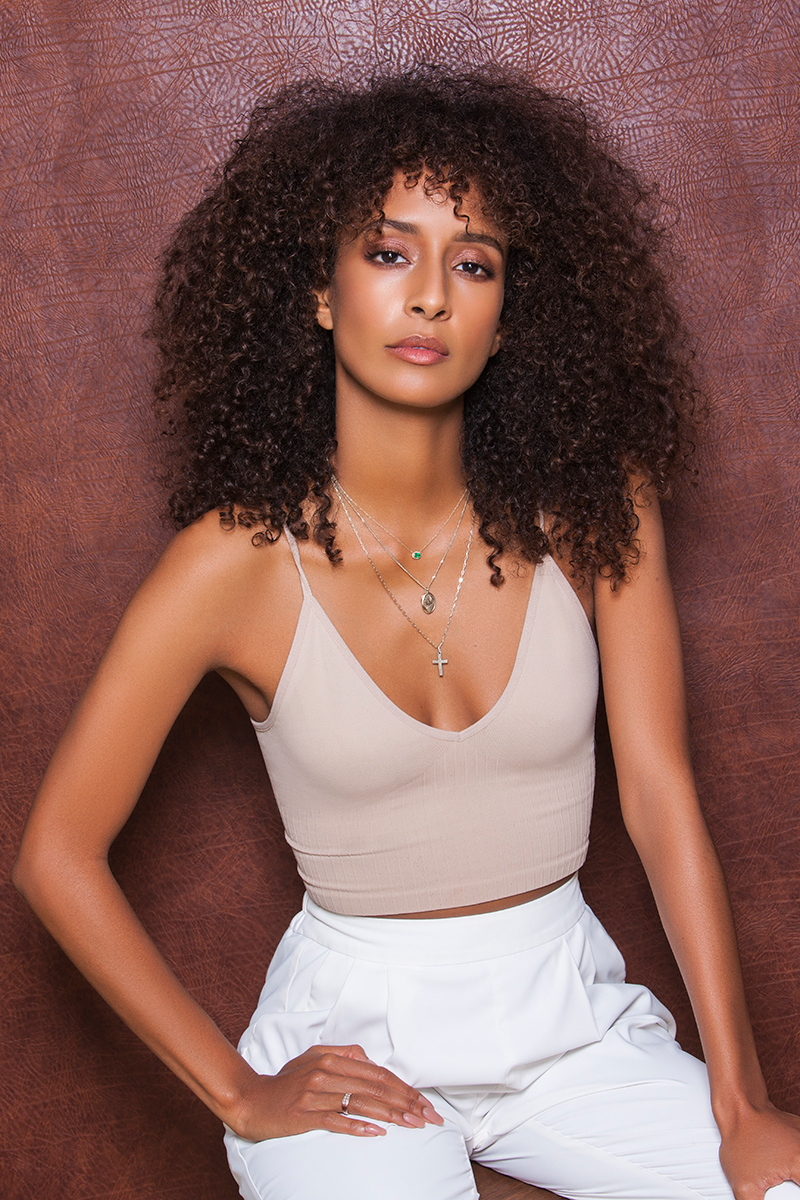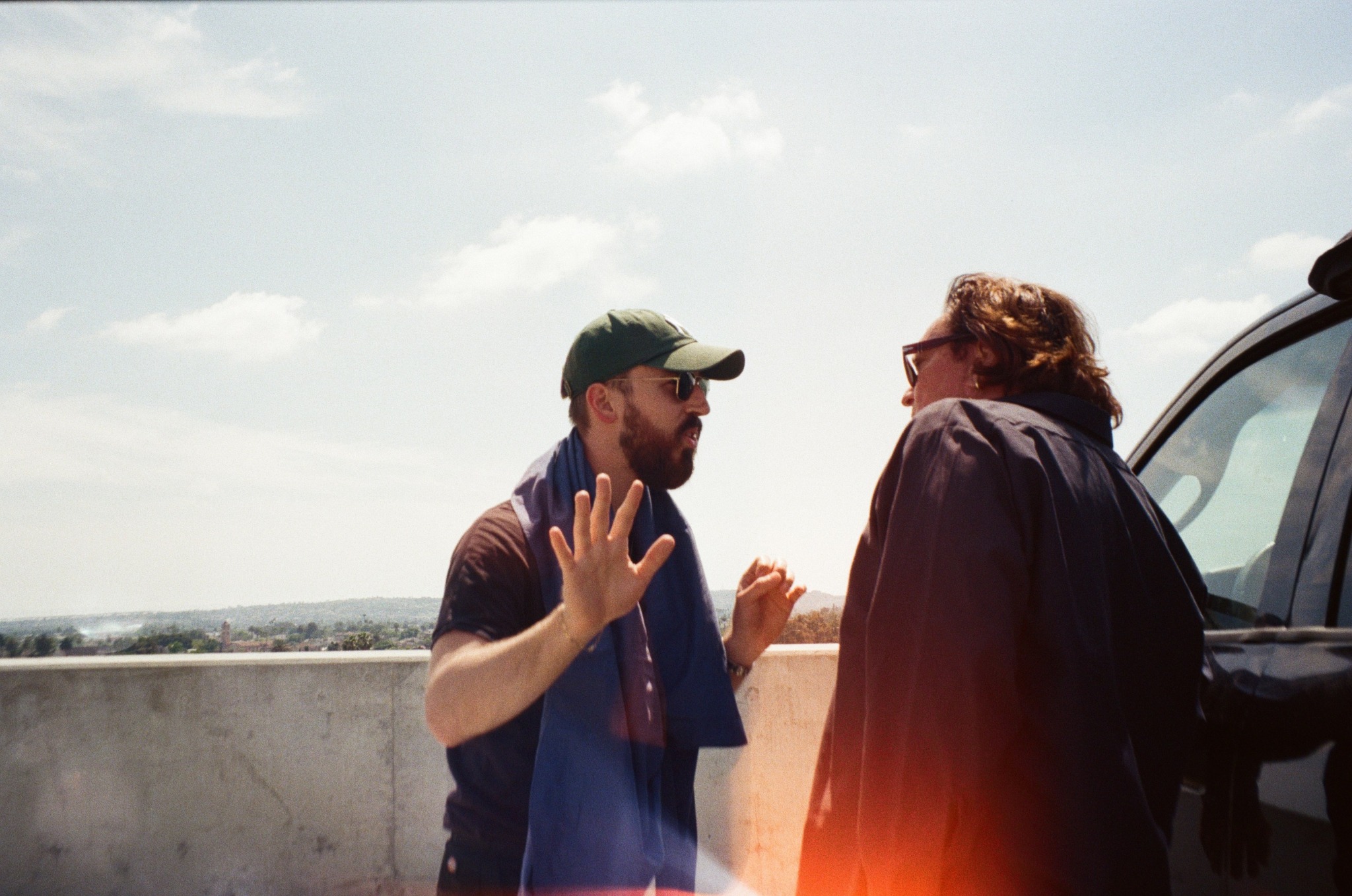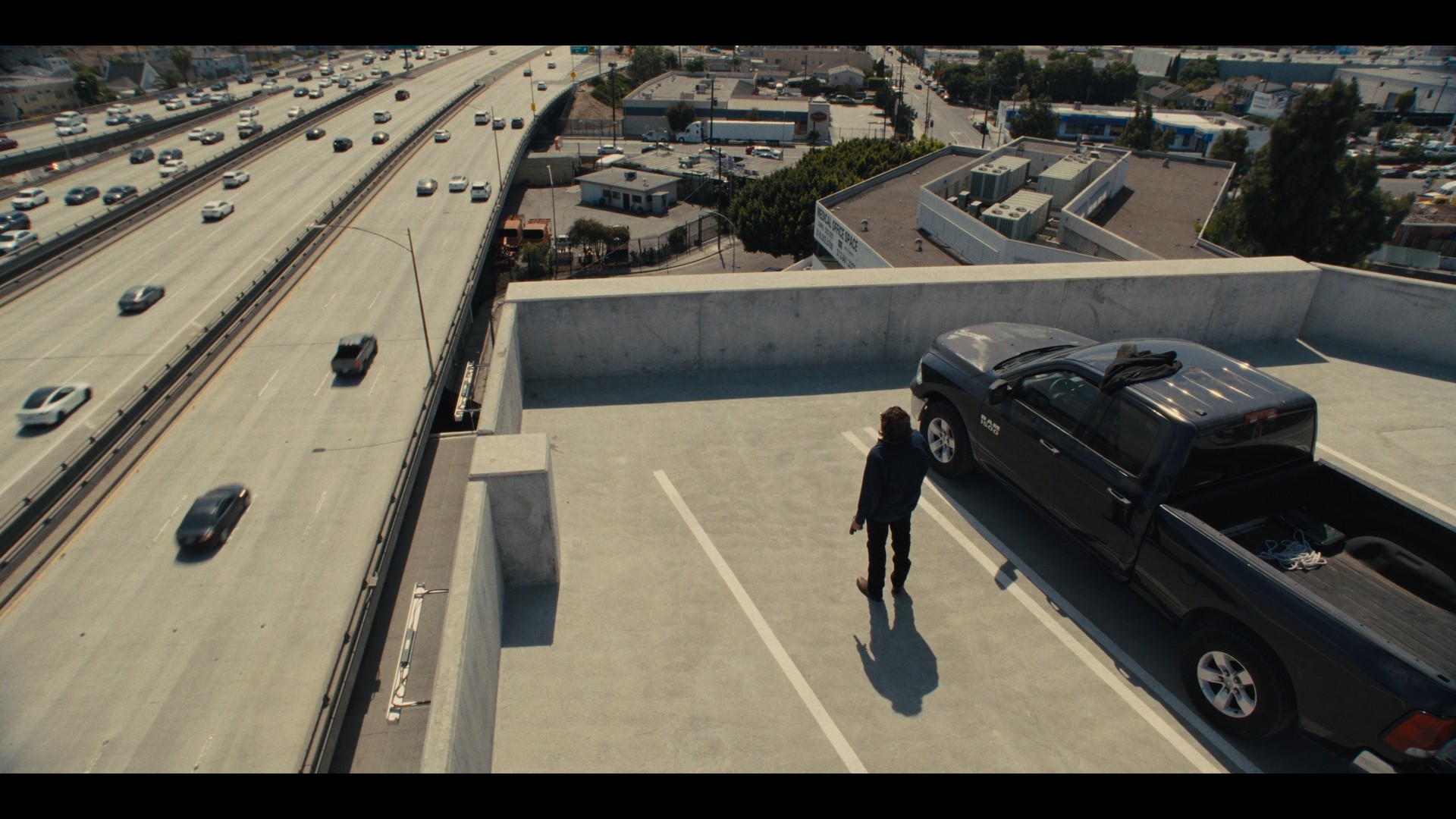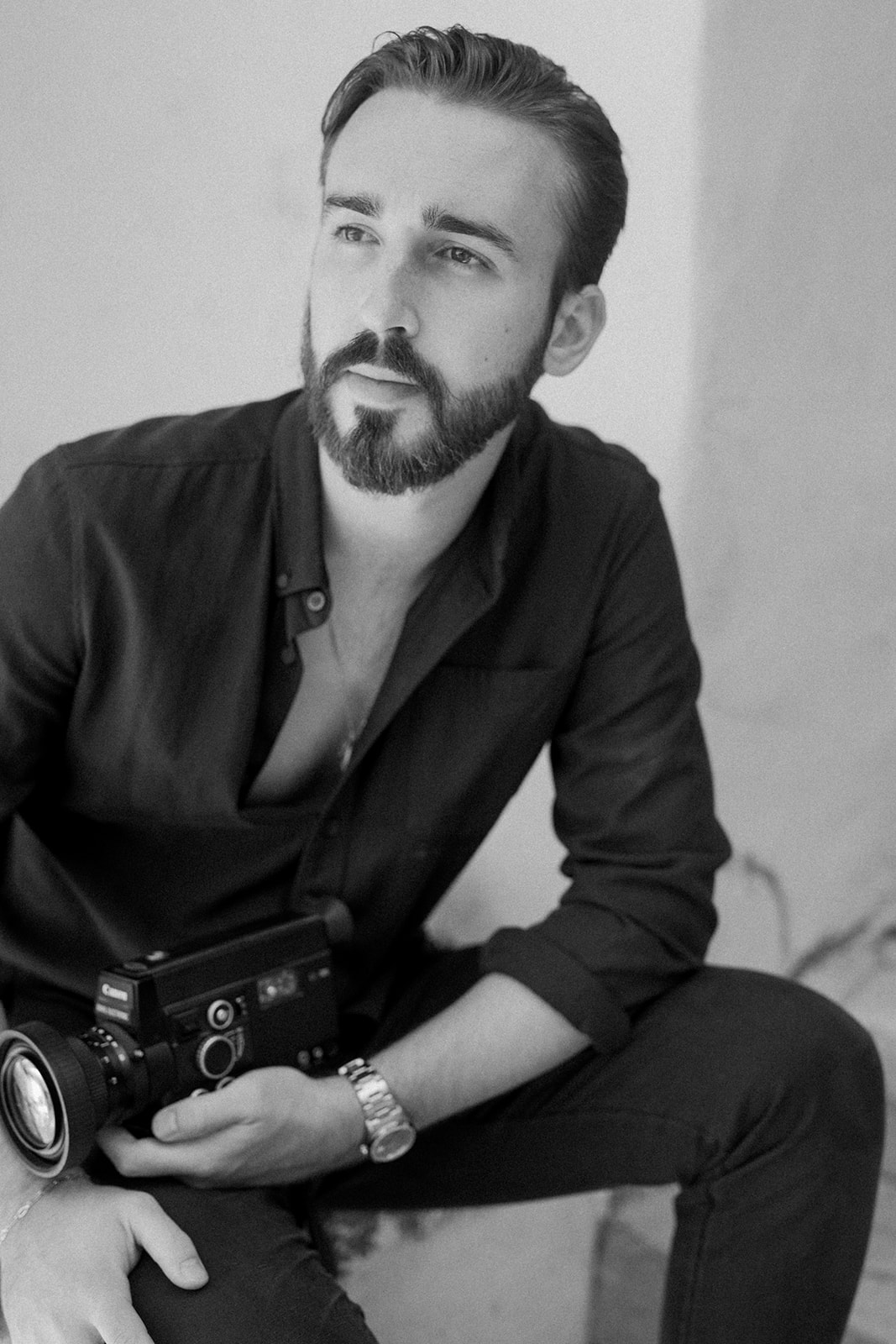We were lucky to catch up with Elizabeth Grullón Thibuad Goarin recently and have shared our conversation below.
Elizabeth Grullón, thanks for joining us, excited to have you contributing your stories and insights. We’d love to hear about a project that you’ve worked on that’s meant a lot to you.
Elizabeth Grullón:
The Things We Carry carries significance for me on many levels. It was a project born from a conversation between friends over dinner. What started out as a friend (producer on the film, Melissa McNerney) sharing a shocking headline she had read, turned into a knowing look and the utterance of those famous last words, “That would make a great short film.”
My frustration at the delays caused by attempting to hire other writers led me to once and for all sit at my desk and furiously pound out the first draft – a skill I had always known I possessed but never really pushed myself to exercise. I wrote the initial draft which was just ten pages and included much of what now appears on screen. Little did I know, it would be over a year and a dozen drafts later before we had a shooting script. Working together with my husband, director Thibaud Goarin, rewriting and rewriting a script in this way, grew me as a writer and filmmaker. I learned a lot during those late-night writing sessions, not the least of which was to push past the point when I thought it was “good enough” and strive for a more perfect story.
The journey continued through pre-production, casting, location scouting and the list goes on. Being a fully independent short film, which we largely financed ourselves, we each wore dozens of hats and the stakes were sky high. Prior to this project, I had primarily been an actress – showing up on set, having my breakfast, dressing in my trailer, shooting my scenes and going home. This was a whole different ballgame. Now I was a producer, responsible for countless aspects of production and up against innumerable variables. Expanding my role in this way, taking on more responsibility and enduring more unknowns, forced me to stretch the boundaries of what I thought I was capable of. On a personal level, I had to step past limiting beliefs in real time – which, in my opinion, is among the most meaningful experiences available to any of us. The night before we started shooting I decided that the point of making movies cannot just be to survive it; if I am going to do this as a career, I have to figure out how to enjoy it. From that point on, I enjoyed myself every day of our four-day shoot.
On set, I found myself back in the actress’ hat, stepping into a scene I had written, with the iconic Michael Madsen as my scene partner – an actor I’ve admired since I was a kid. Michael was warm, supportive and kind, and of course, absolutely brilliant to spar with – that goes without saying. One of the things I love about this project is that it paints a more nuanced picture of a social issue we’ve all seen replayed tirelessly over the years. I’m excited by the idea of seeing Michael Madsen in his vulnerability, his humanity as he inhabits this deeply flawed character. The Things We Carry invites us all to examine our traumas and how they influence our view of the world.
Thibaud Goarin:
When I think back to the night that set everything in motion, I remember a time where I was hungry for a story that felt both immediate and profound. What began as a casual dinner around our kitchen table – my wife, our producer, and me – quickly morphed into what felt like an impromptu pre‑production meeting. Over pasta, our friend described a real‑life tragedy: a young man, wielding nothing more than a toy gun, shot dead by a panicked patron as he fled a robbery. In that instant, grief and violence collided, and I knew I had discovered my next film.
At first, I pictured the story through the boy’s eyes—his desperation, his fear, his misjudgment—but the more I wrote, the more the true heartbeat of the film revealed itself: the man who pulled the trigger. Who is he? What dark impulse drives a seemingly ordinary citizen to transform into vigilantism? An image haunted me for days: a grandfather cradling his granddaughter, a pistol fixed at his hip. In that single frame, I saw both tenderness and terror—and I realized I was chasing something far larger than a crime thriller. I was examining a particular product of our American landscape: the man undone with fear and armed with society’s most lethal tool. In exploring that fear, I found myself feeling empathy for a character dealing with pain, and ultimately grief. This became the DNA of Jack, the lead character of this film.
I’d intended to hire a screenwriter to shape this piece. I had convinced myself that I needed to adapt somebody else’s writing. That pursuit took weeks and led my wife to sit down and write the first draft of The Things We Carry in about two hours. She delivered something incandescent – ten pages of raw, urgent storytelling that set us on a year‑long obsession. Together we labored through more than twenty drafts, each rewrite tightening the tension, expanding upon the story, the characters and the scope. Landing at 20 pages and an extremely ambitious script, our partnership was cemented as writers and producers.
When our script was finally ready, I knew only one actor could bring Jack to life in the way I had envisioned: Michael Madsen – an artist I’d never met, yet felt instinctively would understand our broken hero. Forty‑eight hours after I sent Michael the pages, we were speaking on FaceTime. From that moment on, Jack’s haunted gaze, his fractured resolve, and the silent tremor beneath his every action were born of our collaboration – a partnership that transformed into a friendship and shaped me as a storyteller and a director.
Michael’s untimely passing has cast a new shadow over the film, his final lead performance now a testament to the risks we took together. Every frame of The Things We Carry carries his spirit. Yes, I set out to make a cinematic thriller with a pulse – but more than that, I wanted to speak of the heart’s capacity to destroy and to grieve. In the end, this project was my biggest swing yet – ambitious, risky, and nearly impossible.

Great, appreciate you sharing that with us. Before we ask you to share more of your insights, can you take a moment to introduce yourself and how you got to where you are today to our readers.
Elizabeth Grullón:
I’ve known I wanted to be an actress since I was a kid. I attended a performing arts high school and studied acting in college. I got my start in the industry by moving to LA and auditioning my heart out. It was years of hammering away at auditions until I finally started booking a guest star role here, a recurring role there. Fun fact, I actually didn’t start booking jobs until I started meditating – that’s what really changed things for me. I finally got a bigger job in 2018 when I was cast as the Second Sister in the video game Star Wars Jedi: Fallen Order. This led to other major roles in AAA games and animated series, as well as continuing to work on shows like Grey’s Anatomy, Lucifer, The Rookie, and more. Since meeting my partner Thibaud, I’ve started to expand my roles as a writer and producer, which has led us to some really interesting places.
I aspire to put out into the world, work that first and foremost is entertaining and exciting for audiences regardless of the subject matter – work that gets people talking, makes people feel engaged with the material. As an actress, it’s always about making people feel seen by sharing a piece of my heart as authentically as possible. I have ideas for shorts, features, series, animated series, writing projects, and poems. For me, there is no limit on a “type” of creative work, it all just pours out in whatever form it wants.
The world we live in affects me every day and inevitably shows up in the work. I am devastated by injustice, the harming of our planet, the ignorant, limiting beliefs that we allow to have so much power over us. These themes will probably show up in my work again and again over the years. For me, The Things We Carry is about exactly that – the thoughts that shape our worldview, making it not-at-all objective. I am fascinated by the idea that each of us lives in a world of our own making and I’m interested in art that explores what happens when those worlds collide, for better or for worse. My creative journey is driven by a desire to express my own unique essence into the world – to share, to witness, to be witnessed and to connect.
I believe in the uniqueness of every individual, and some of the things that set me apart from some of my peers is that I am a first-generation American and the proud daughter of immigrants. My family moved to New York City from the Dominican Republic in the 1960’s. They navigated the impoverished, violent streets of Manhattan, learning English in real time, and worked their way toward the American dream. This is something I am forever in awe of and in gratitude for. I was raised a cinephile, watching hours of movies from the neighborhood Blockbuster with my siblings every Friday night. Since I was 8 years old I knew I wanted to be an actor and over 20 years later I’ve never abandoned that dream, despite the highly competitive, arduous nature of this industry. Over the years I have performed on stage in Off-Broadway theaters and national tours, on screen in notable television shows and award-winning films, across from actors like Jon Hamm in major commercials, as well as writing and producing my own projects.
I am a dedicated practitioner of mindfulness meditation which has had a profound influence on my life, my relationships and my work as an artist. It’s actually this that I am most proud of – the private work, the inner work no one sees. The disassembling of imposter syndrome, the release of people, places and things that don’t align with the greater vision, the death of the people pleaser. This work has changed everything for me and been so satisfying. I’m really proud of that.
I hope that those we meet on our journey, whether they be old friends or new connections, know that this is just the beginning. I hope they love The Things We Carry and begin to know us as filmmakers with discerning taste for cinema and stories. I hope audiences sense that as a producing team, Thibaud and I are always creating from a place of love.
Thibaud Goarin:
Growing up in Paris, France, I fell in love with cinema long before I ever picked up a camera. As a kid, I’d disappear into my father’s DVD collection – Kurosawa, Truffaut, Scorsese – but also comedic masterpieces like ‘The Blues Brothers’ or the beautiful and unmistakably French Belmondo in That Man From Rio.
When I turned fourteen, I decided I didn’t just want to watch movies; I wanted to make them. In what felt like a near‑impossible feat, I wrote my first script and grew my first bit of beard and somehow convinced twenty adults – all above 30 years old, seasoned actors and technicians – to believe I was much older than I was and to join me on a weekend shoot. It was crude and earnest. The story was a hint at my age, but the film looked and felt like a real film.
I later attended film school in Paris, directing a second short, a period piece about jazz and grief, themes that still echo through my work. That project crystallized my love for actors and the magic of crafting a moment that rings true, even for a single frame. Two weeks after graduation, I landed in Los Angeles with nothing but conviction and a suitcase. I started as a production assistant on junket sets, learned the engine of production from the ground up, and proved my abilities as an editor. Next thing I knew I was building and leading a post‑production department for a boutique company called Glass Engine. I held this position for five years.
During that time, I kept directing on the side as much as I could – shooting music videos, and short pieces until I met Elizabeth Grullón. Our first film was a 16 mm poetic short born of the raw emotions of the rampant social unrest in 2020. That film wasn’t just our first artistic collaboration – it was the spark of a partnership that has empowered us both. When The Things We Carry demanded every ounce of my time, I let go of post‑production and embraced full‑time directing – a difficult step that was made easier by the relentless encouragement of my wife. Today, my discipline is rooted in that early hunger, blending the fearless drive of my fourteen‑year‑old self with the craft and wisdom I’ve gained to guide me to projects that truly matter.
I aim to keep pushing my own boundaries. While I’m drawn to dramas, thrillers, and historical pieces, I’m just as curious to see how new life experiences influence my writing. Right now, I’m developing a deeply personal story about illness and family dynamics, told in a style that felt entirely new to me, and that’s been wonderfully liberating. I believe each film reveals a different facet of who we are, and I want to lean into that constant reinvention. That being said, my North Star is to make a great American epic. That’s the ultimate dream.
Truth be told, what drives me to filmmaking has evolved a lot recently. When we initially began to work on The Things We Carry, I approached the project with a sense of duty and passion – almost in an activist vein – to spark change around gun violence. As we worked, I realized that isn’t my role. My responsibility is simply to put complex, relatable, real humans on screen. Films inevitably carry opinions and can ignite debate, but I don’t want that to define me. I make films because I love how they bring me closer to understanding, and ultimately loving, people.
Personally, I believe what makes any artist stand out is how deeply they tap into their own, unique sensibility. I’m still in the process of finding my authentic voice – I think I will be for the rest of my life – but I trust that my work will shine not because it’s better or worse than anyone else’s, but because it will be unmistakably my own. After all, we’re all retelling the same stories – it’s the singular lens we bring that makes them fresh.
Even from a young age, I experienced the world through the lens of feeling – a glance, a texture, a scent – seeing the small details in things which I now understand many overlook. I think back to the shy boy I was in school. Too sensitive to speak, I’d gaze out the window, dreaming of the person I wished I could be – the fiction of cinema providing an escape from my reality. What I initially perceived as a liability became my greatest strength. Over the years I pulled myself out of that shell. Through my passion for cinema, a little touch of French pride, and my incredibly supportive wife and filmmaking partner, I’ve managed to speak up and share that sensibility with those around me and now the world at large. That very sensibility has taken me far and wide. It’s led me to incredible moments, like when Michael Madsen brought our words to life on screen – a thrilling vindication for that once‑quiet kid. Aside from all this poetic stuff, I’m most proud of my one‑month‑old daughter, Ella.
I truly hope that from our work, audiences gather that we have the utmost respect for humanity. Everything we do is motivated by people. We aim to inspire others to dream, feel and think deeply, in ways society too often prevents us from doing – hopefully we succeed.

For you, what’s the most rewarding aspect of being a creative?
Elizabeth Grullón:
For me, being an artist is a badge of honor. I actually think about it often – how easy it would have been to get a more “reasonable job,” something more steady and predictable, but the title of artist is reserved for those who are unreasonable, for those who believe life is about something more than steadiness and predictability. Being an artist in a world that values profit and status and that indoctrinates us in capitalism, is so special. For me, it’s rewarding every time I remember the fact that I did it – I’m one of the dreamers.
Thibaud Goarin:
The most rewarding aspect of being an artist is the privilege of living by your passion. It infuses every day with color and purpose. No two projects are ever the same – each brings new ideas, new collaborators, new challenges – so my work keeps me endlessly curious and engaged. I’ve had other jobs, and ultimately, creating art is the most meaningful way I know to express who I am and to connect with others.

Are there any books, videos or other content that you feel have meaningfully impacted your thinking?
Elizabeth Grullón:
The most influential books on me were not necessarily about filmmaking but about how we think – ‘The Untethered Soul’ by Michael Singer, ‘The Power of Now’ and ‘A New Earth’ by Eckhart Tolle, the work of Thich Nhat Hanh and Tara Brach – these books made me conscious of “awareness” which impacted everything for me, including filmmaking.
Thibaud Goarin:
I come from a family of pilots and aviation fanatics – and pilots, by nature, are sentimental. Reading Antoine de Saint‑Exupéry’s essays and even lesser‑known works like ‘Fly by Night’ taught me early on how to find poetry in motion. And then music – it’s hard to pick one genre but if I had to, it would be the American blues. It has had a profound impact on me and shaped my sense of rhythm and style. As for films, here’s an attempt to boil it down to three films that shaped me: La Haine, There Will Be Blood, and Empire of the Sun, but if you were to ask me this question again tomorrow, the answer would likely be different.
The single greatest resource I’ve discovered is simply watching films – good and bad – from every corner of the globe and every era. Whenever you can, catch classics on the big screen and study what makes them resonate and how they move an audience.
If there is one thing I wish I could tell my younger self, it would be this: don’t wait until your film is “perfect” to share it. Showing your work early is daunting, but invaluable. Some artists are better at this than others, but for me it was very hard. The feedback you gather, even if it stings, teaches you to distinguish useful criticism from noise and accelerates your growth as an artist.
Contact Info:
- Website: https://www.thibaudgoarin.com/
- Instagram: https://www.instagram.com/thibaudgoarin/?hl=en
- Other: Elizabeth Grullón’s Instagram: https://www.instagram.com/elizabethagrullon/?hl=en



